14 Effective And Healthy Weight Loss Tips For Teenage Girls
Improving diet and adopting a healthy lifestyle can help teenagers avoid many health issues.

Image: ShutterStock
A diet of fries, burgers, pizzas, and soda is typical for teenagers. That’s why it’s difficult for teenage girls to lose weight. The WHO estimates that 1 in 10 adolescents are obese or overweight due to poor eating choices and a sedentary lifestyle (1). There also is an increase in the risk of teenage diabetes, joint problems, heart disease, and high blood pressure (2). Teenage obesity may also affect their adulthood.
However, shedding a few excess pounds can take care of a host of problems. If you are wondering about how to lose weight fast for teens, then you have come to the right place. Here are 14 healthy weight loss tips for teenage girls to help them get healthier. Read on!
If you find your child’s weight to be unhealthy, these tips may come in handy.
In This Article
Average Weight For Teenagers
Maintaining a healthy weight during adolescence is essential to manage overall health and development. According to research conducted by the World Health Organization (WHO) and the National Center for Health Statistics (NCHS), the ideal average weight for teenagers may vary significantly based on their age, gender, and geographical location (3), (4).
It is more appropriate to consider a healthy weight range rather than a specific average weight because adolescents go through growth spurts at different rates. You can determine a healthy weight range for a specific teenager through growth charts and BMI percentiles that consider their age and gender (4). Also, consult a doctor to properly understand what your teen’s ideal weight range is and how to achieve it healthily. It is important to remember that there is no one-size-fits-all ideal weight for teenagers.
Key Takeaways
- A healthy lifestyle may help teenagers avoid many health issues.
- Drinking enough water and exercising, which may aid in weight loss.
- Managing your stress levels through yoga and meditation may help prevent overeating and reduce weight.
- Getting adequate sleep may help regulate your body weight.
1. Ditch The Soda
Sodas contain sugar that exceeds the daily limit of 25 grams (5). They cause obesity and diabetes (6). Research group has also found pesticide residues in certain soft drinks/soda (7). Replace soda with homemade iced tea, lemonade, pulpy ice watermelon and berry juices with mint, lime, and a pinch of pink salt.
2. Avoid Junk Food

Junk foods contain trans fats and saturated fats and are high in calories, salt, and sugar (8), (9). They can make you gain stubborn fat, which can get difficult to lose later. Hence, it is important to steer clear of junk food if you want to lose weight. Here is how you can start:
- Switch to healthy snacking – Consume baked chips, fruit juices, baby carrots and hummus, cucumber, nuts, and plain popcorn.
- Trade your cold drink for a bottle of detox water, iced tea, or freshly pressed fruit juice.
- Have fruits instead of sweets. If you crave sweets, have fruits instead of ice cream. You can also have a square of dark chocolate (80% or more cocoa content). Low-fat frozen yogurt topped with fresh fruits can be equally tempting and satisfying.
 Trivia
Trivia3. Consume More Fiber and Protein
Foods rich in dietary fiber and protein promote satiety and keep your hunger pangs at bay
(10), (11). Dietary fiber also improves digestion by promoting the number and variety of good gut bacteria (12). Protein prevents lean muscle loss during the weight reduction phase (13). Here’s what to consume to get enough protein and fiber from food sources:
- Veggies– Spinach, carrot, asparagus, eggplant, okra, lettuce, tomato, cucumber, scallions, cabbage, Chinese cabbage, purple cabbage, bok choy, chard, peas, radish greens, bell pepper, parsley, and cilantro.
- Fruits – Apple, banana, pineapple, peach, pear, orange, tangerine plum, blueberry, strawberry, watermelon, and muskmelon.
- Protein – Egg, fish, tofu, mushroom, lentils, kidney beans, soybeans, black beans, blackeyed peas, garbanzo beans, sprouts, and edamame.
4. Consume Good Fats
Not all fats are bad. The omega-3 fatty acids found in fatty fish, nuts, and seeds are great for weight loss and overall health (14), (15). The oryzanol in rice bran oil helps lower bad cholesterol (16). Here’s a list of healthy fats you can consume and avoid:
- Healthy fats to consume –Avocado, olive oil, avocado oil, rice oil, ghee (clarified butter), almonds, walnut, macadamia, pine nuts, pistachios, fatty fish, flax seeds, melon seeds, chia seeds, sunflower seeds, peanut butter (not more than 2 tablespoons per day), sunflower butter, flax seed butter, and omega-3 supplements (after consulting a licensed doctor).
- Fats to avoid – Vegetable oil, butter, lard, cheese, chicken skin, pork fat, and margarine.
5. Be Active
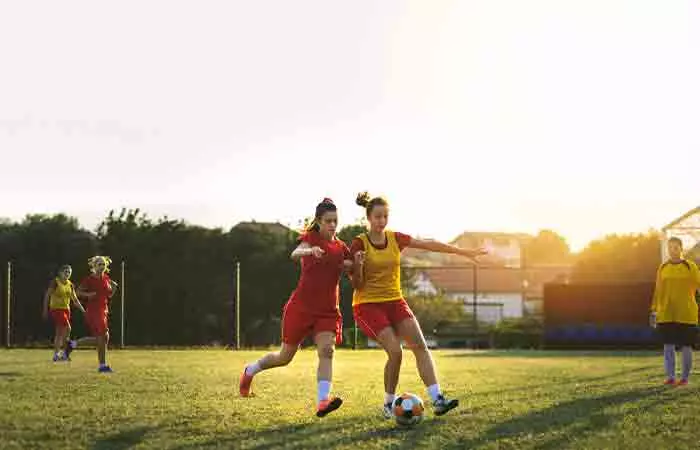
Being active is important, irrespective of one’s age. Teens have plenty of options to stay active, like playing a sport, learning to dance from YouTube, learning ballet, performing gymnastics, ice skating, running around with friends, rock climbing, walking dogs, riding a bicycle, going on treks and camping, etc.
 Trivia
TriviaYou may also try these following body weight exercises:Say No To Fast Foods
- Warm-up – 10 minutes
- High knees – 3 sets of 12 reps
- Alternate standing cross kicks – 3 sets of 12 reps
- Lying leg raises – 3 sets of 12 reps
- Scissor kicks – 3 sets of 12 reps
- Crunches – 3 sets of 8 reps
- Bicycle crunches – 3 sets of 8 reps
- Rope jumping – 3 sets of 25 reps
- Mountain climbers – 3 sets of 12 reps
- Spider climbers – 3 sets of 12 reps
- Jump squats – 3 sets of 12 reps
- Elbow plank – 2 sets of 30 seconds hold
- Plank up-downs – 2 sets of 10 reps
- Lying ankle taps – 3 sets of 20 reps
- Cool-down – 10 minutes
6. Stay Hydrated
Dehydration leads to toxin build-up (17). This, in turn, can lead to inflammation-induced obesity (18). Drink at least 2-3 liters of water to flush out toxins and support weight loss. To ensure proper hydration you may also consume water in the form of freshly pressed fruit juice (without added sugar), soup, fresh vegetables, delicious smoothies, and detox drinks.
7. Never Skip Breakfast

Breakfast is the most important meal of the day. If you are used to skipping it every day, think again. This could very well be the reason behind your weight gain.
Have your breakfast within 60-120 minutes of waking up in the morning. A good breakfast should have a balance of protein, fiber, and healthy carbs. This can help kick-start your metabolism, helping you lose weight faster. Healthy breakfasts curb your hunger pangs and keep your brain active throughout the day.
 Trivia
Trivia8. Say No To Fast Foods
Fast foods, like fried chicken, burger, and pizza, and loaded with bad fats and carbs. Even though they may have veggies as a topping, they do not count under healthy eating habits due to added preservatives and sodium contents. As a teenager, replacing fast foods with whole foods could be a challenge. But it is important to make that decision as the trans fats in fast foods could elevate bad cholesterol levels and increase the risk of heart disease.
9. Practice Portion Control
Consuming too many calories will not help you lose weight. Teenage girls need 1400-2400 calories per day, and boys need 1600 – 3000 calories per day, depending on the activity level (19). Instead of fanatically weighing your food, practice portion control and discipline as a form of self-care.
Eat in a smaller plate. Half of your plate should contain veggies/fruits, one-fourth of the plate should contain protein, and the rest one-fourth of your plate should contain whole grains. Have a square of dark chocolate or one serving of baked chips. These are better alternatives to fried foods coming directly from the bag. .
10. Try Yoga

Yoga is one of the best methods for weight loss, and this holds true across generations (20). It gives you the power to combat other changes in your body and life. It is the best way to attain a calm mind, body, and soul. Moreover, it channelizes more energy into your body and helps regulate your metabolism. and improves your mental health, which is crucial for stress management. If you find regular yoga boring, try aerial yoga, or do a mixed workout that includes yoga. Apart from yoga, you may also manage stress by following mindfulness practices like meditation and journaling.
11. Don’t Take Exam Stress
It’s easier said than done, especially when you are in high school and will be going to college soon. This is where you, as a young adult, need to learn to train your brain. If you are well-prepared, teach a fellow student. It will help in your revision. And if you have not studied, do it. Worrying and cribbing will only make you eat more (emotional eating) and increase the risk of obesity and prediabetes.
12. Sleep Well
Sleep deprivation can lead to weight gain (21). You may feel lethargic all day, and this may compel you to skip your daily exercises and other activities. Stick to a sleep schedule. Try to wake up and go to sleep at the same time every day.
Also, never fall asleep with the TV on. The light disrupts your sleep pattern and prevents you from getting a good night’s sleep.
13. Write Your Goals
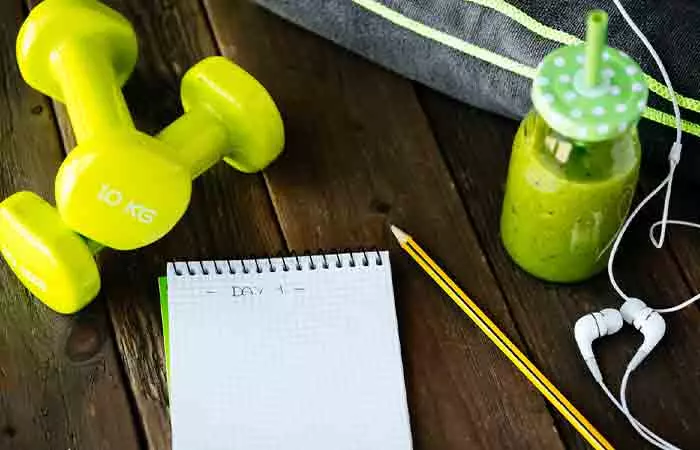
It is one thing to set your goal and another to achieve it. Write down your weight loss goal. Don’t just wish for it; work towards it. Set a realistic, short-term goal. For example, “I want to lose 1 pound in 7-10 days” is a realistic, achievable goal. Stick weight loss motivation quotes in places you are bound to notice. Start with that one exercise that you like the most. Do not opt for fad diets to lose weight fast. You will regain the weight as quickly as you lost it.
14. Seek Support From Your Family
The best support you can get on your weight loss journey as a teenager is from your loved ones. They can encourage healthy habits, help prepare nutritious meals, and offer emotional support when you face challenges. With their support, you will feel more motivated and confident in reaching your goals.
These are the 14 ways in which you can lose weight. In addition to following these tips, here are a few points you should keep in mind.
Points To Remember
- Eat healthy. Have 5-6 small meals a day (every 2-3 hours).
- Avoid fad diets.
- Do not take weight loss pills.
- Avoid energy drinks.
- Learn self-control.
Infographic: 6 Easy Weight Loss Tips For Teenagers
Poor nutrition and lack of physical activity increase the risk of teenagers gaining weight and developing diabetes and several other health issues. Shedding those stubborn pounds is key to a long and healthy life. We have rounded up 6 easy weight loss tips for teenagers in the infographic below. Scroll down to know more!

Illustration: StyleCraze Design Team
To lose weight as a teenage girl, you need to change your lifestyle and diet if you are leading a sedentary lifestyle and making poor food choices. First of all, take full accountability for your choices and actions. If you’re wondering how to lose weight fast at home, follow certain effective diet tips such as cutting down on soda, avoiding fried or heavily processed foods which are generally very high in trans fats, and incorporating more vegetables and fruits in your meals. In addition, drink more water and incorporate exercises into your daily routine. Planks, mountain climbers, rope jumping, high knees, and bicycle crunches are effective exercises that can help tone your muscles and shed excess fat. With these healthy habits, you will develop a healthy body image, which will boost your self-esteem and confidence. Above all, accept yourself just the way you are, spend more time with your support system of your friends and family, and take your journey to fitness and wellness one day at a time.
Frequently Asked Questions
What is the best diet for a teenage girl?
The best diet for teenage girls must contain 1300-2300 calories, depending on the activity levels. It must have a balance of macronutrients like protein, dietary fiber, and healthy fats. For it, you can include a variety of fruits, vegetables, healthy fats, whole grains, and lean proteins in your diet. You may also consult a nutritionist for a dietary plan tailored to your personal needs.
How many calories should a teenage girl eat to lose weight?
This depends on the current weight, target weight, activity level, medical history, and current medications. Talk to a doctor or registered dietitian for the best advice.
What is considered fat for a 13-year-old?
Check your BMI to know whether you are overweight or obese. Your doctor will be able to help you and advise you on how to reduce calorie intake and lower your BMI.
How can a teenage girl lose lower belly fat?
Following a balanced, nutritious diet and working out is the best way to lose lower belly fat for teen girls. Here is a list of foods you can consume and lower belly exercises you may do. Talk to a doctor to know what should be your daily calorie intake.
What is the best age to lose weight?
According to anecdotal evidence, the mid-20s and early 30s are the best time to lose weight. However, those predisposed to obesity or medically advised to lose weight may do so in their early 20s.
At what age do you start gaining weight?
According to anecdotal evidence, you start to gain weight in your mid-20s to mid-30s due to your metabolism plateauing.
Illustration: Ways Teens Can Lose Weight Healthily
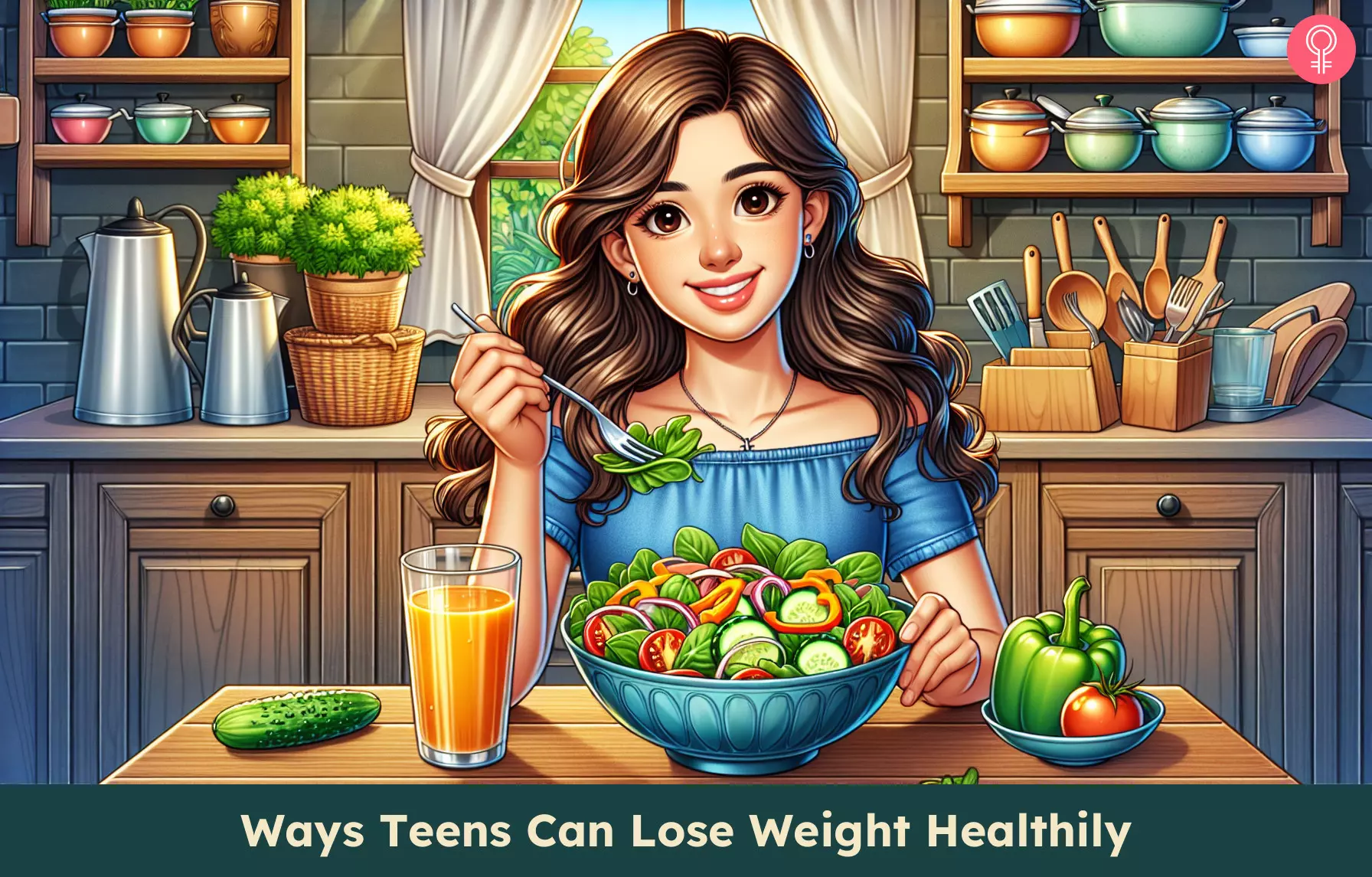
Image: Dall·E/StyleCraze Design Team
Read full bio of Madhu Sharma
Read full bio of Ravi Teja Tadimalla
Read full bio of Sindhu Koganti











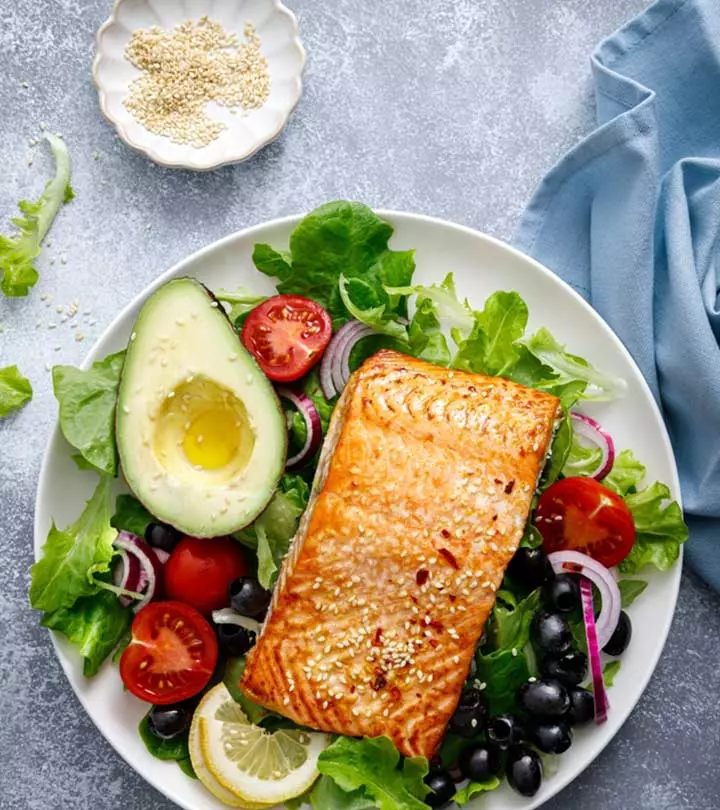
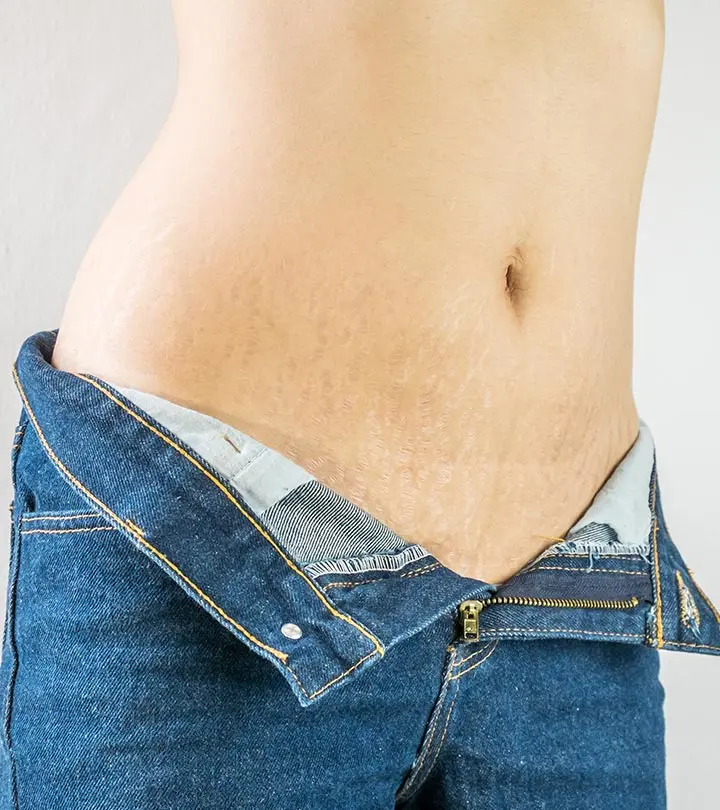
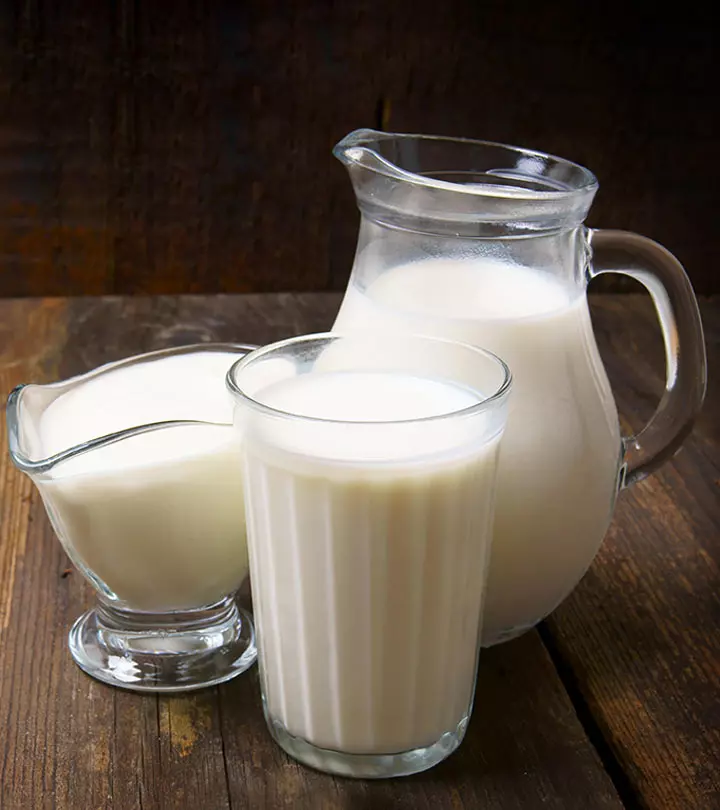



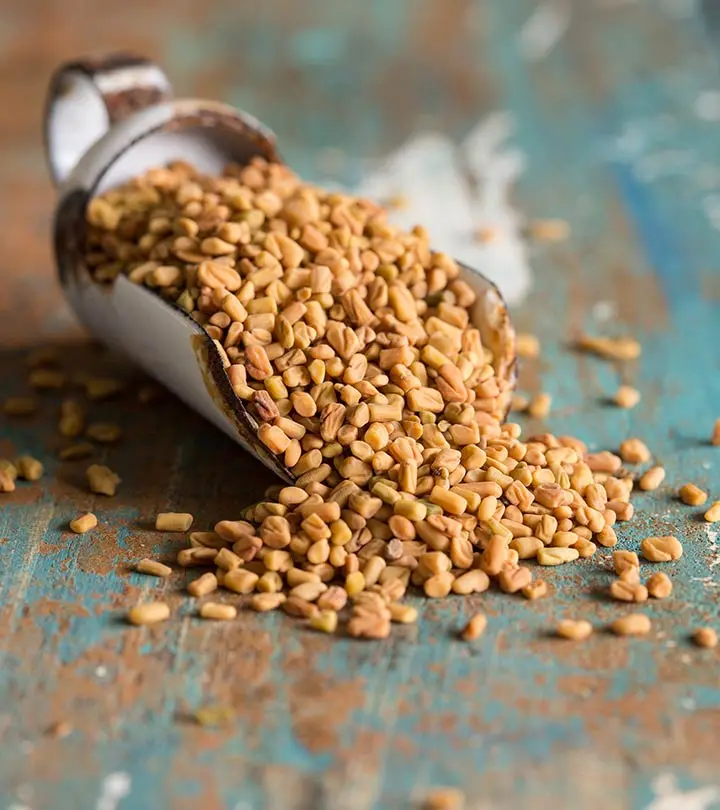
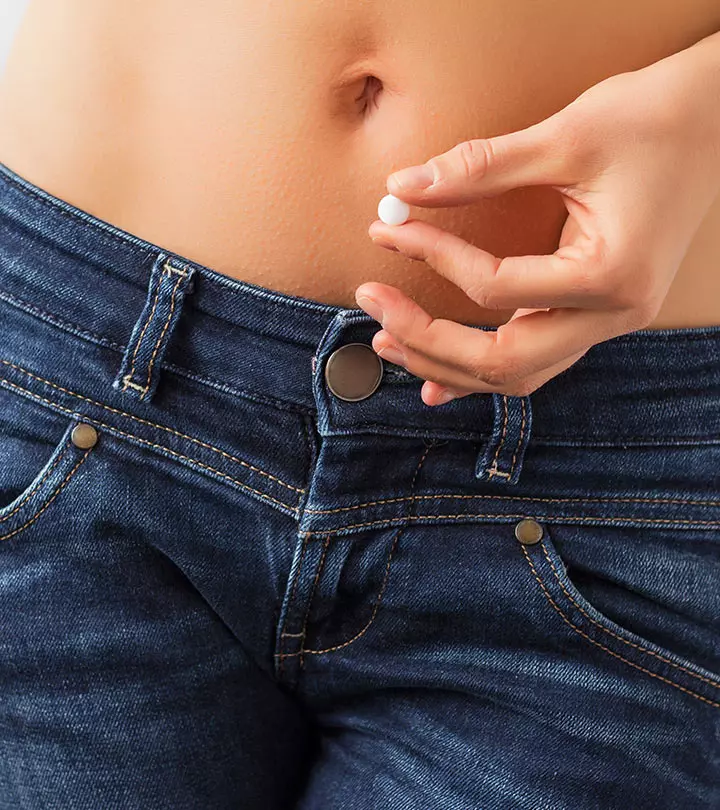








Community Experiences
Join the conversation and become a part of our empowering community! Share your stories, experiences, and insights to connect with other beauty, lifestyle, and health enthusiasts.